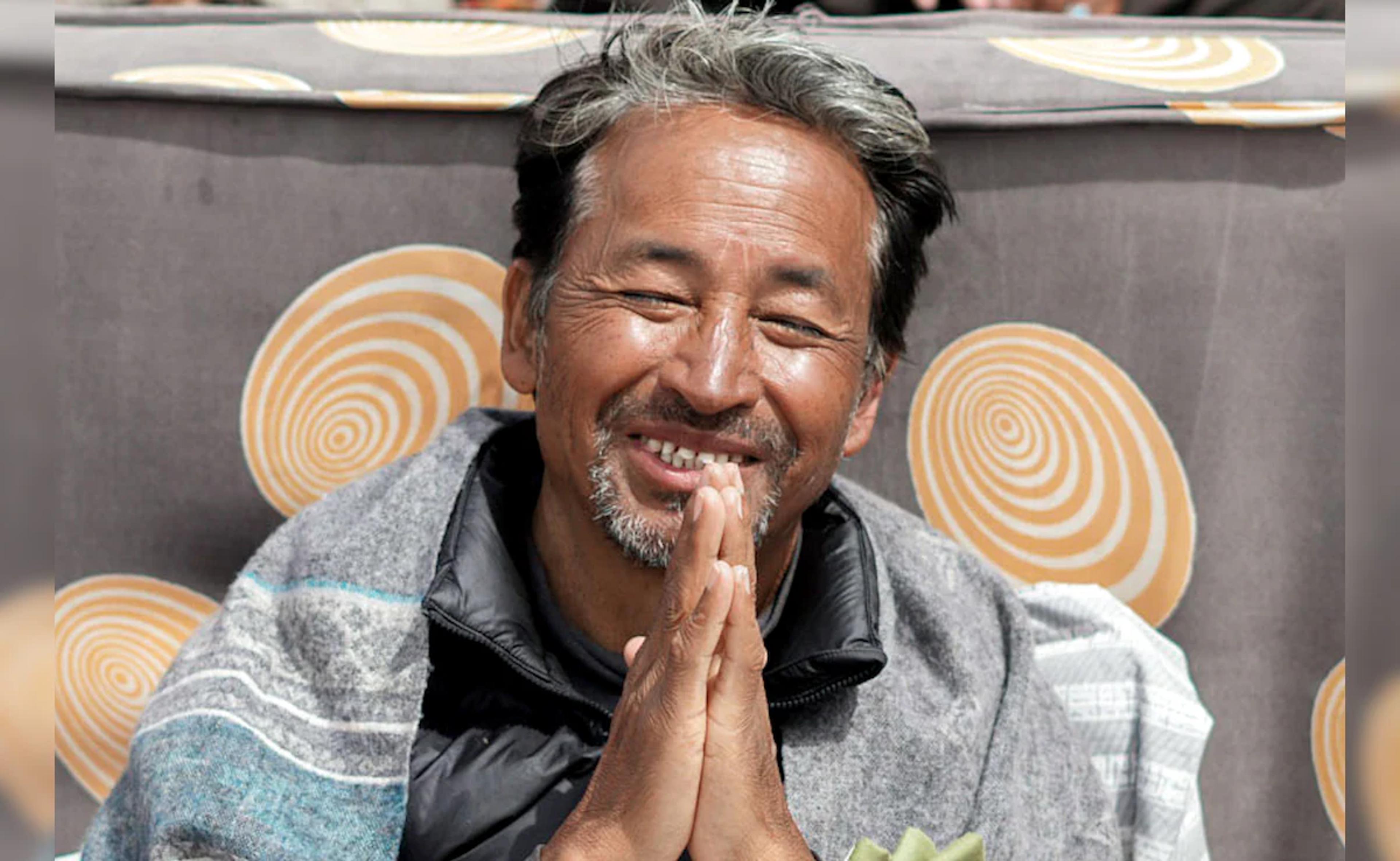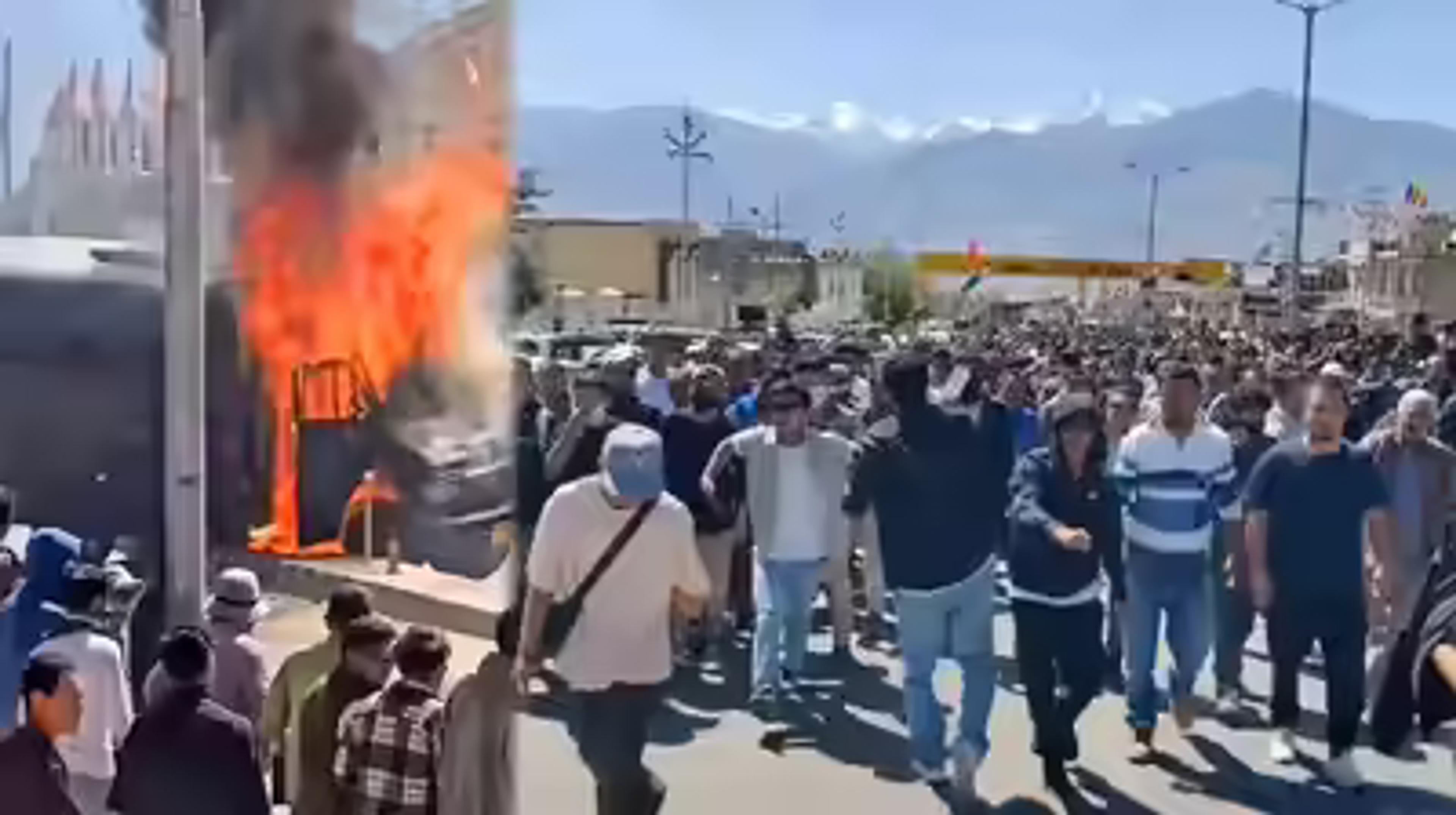Ladakh under Curfew as Protests turned Violent: The Arrest of the Climate Activist Sonam Wangchuk

Sritama Chakrabortty
Published
Protests have erupted in Ladakh over demands for statehood and the inclusion of Ladakh within the Sixth Schedule of the Indian Constitution. Climate activist Sonam Wangchuk, in support of these claims, initiated a hunger strike. Meanwhile, the Protests turned violent, leading to the deaths of 4 people and more than 90 injuries. Following such violence, Sonam Wangchuk has been arrested under the National Security Act of 1980 on the grounds that his provocative speeches led to the incitement of violence and unrest. Authorities have also revoked the license of Student’s Educational and Cultural Movement of Ladakh (SECMOL) - an institution founded by him from receiving foreign funding. The protests and detention raise the immediate need to accentuate the demands and interests of the local populace in Ladakh, the need for political representation, regional autonomy, and constitutional safeguards to preserve rights and opportunities for Ladakhis while simultaneously taking strong steps to resist violence and maintain public order.
Violent protests have erupted in Leh, Ladakh, over the past 2 days, leading to 4 casualties and multiple injuries amongst locals of the valley. Police officers claim that Sonam Wangchuk, a well-known innovator, engineer, and climate activist who gained prominence for raising regional demands in Ladakh and for his involvement in sustainable development and education reforms in high-altitude areas, had been a key instigator in the unrest. The abrogation of Article 370 by the Government of India and the decision to bifurcate the state of Jammu and Kashmir into two parts - Jammu& Kashmir and Ladakh- led to Ladakh receiving the status of a Union Territory without a legislature in August 2019. Since then, Ladakh, administered directly from the Centre, has encountered many local groups vociferously complaining about the lack of regional autonomy and political representation to voice their demands and interests.
Activists in Ladakh have mainly been advocating for two demands: the declaration of Ladakh as a state and the extension of the Sixth Schedule of the Indian Constitution to Ladakh, considering the fact that at least 90% of the total population of Ladakh is considered tribal. The Sixth Schedule provides for the autonomous administrative divisions for the tribal areas so that the local communities can conserve their cultural identity, protect natural resources, and prevent demographic alterations through land ownership restrictions.

Activism formally gained momentum in Ladakh on September 10, 2025, after Wangchuk began a hunger strike in support of those aforementioned demands. The hunger strike was one element of a greater movement launched by Leh Apex Body, an umbrella organization for all civil society groups in Ladakh. Wangchuk's hunger strike lasted for 15 days and attracted international media attention to the demands for constitutional safeguards for Ladakhis. The mass demonstration convened by the Leh Apex Body in Leh, the regional capital, quickly escalated to violence on September 24, 2025.
Demonstrators and police clashed with four reported deaths and around 90 injuries, according to government sources. During the violence, the local BJP's office in Leh was set on fire. Other government buildings and vehicles also suffered damage through the violence.
Wangchuk quickly called off his hunger strike officially on the same day, saying that violence was in a way eclipsing the legitimate objective of the movement, urging protesters to be peaceful.

On September 26, 2025—two days as a result of violent demonstrations—Ladakh police detained Wangchuk, along with 43 others. Wangchuk is being held under the National Security Act (NSA), 1980, which is a preventive measure allowing detention of individuals for the incitement of violence under the grounds of national security, public order, or reasons to limit the disruption of essential services. The NSA is regarded as one of India's strictest laws, as it can permit detention without trial and limit the right to representation during the initial period. If exercised under Section 3 of the NSA, detention can be justified, provided that the Central Government, State Government, or District Magistrate is satisfied about the necessity of such detention to prevent the person from behaving in a certain way that might be considered prejudicial to national security or public order.
Since his detention, Wangchuk has been taken from Ladakh to a high-risk detention facility in Jodhpur, Rajasthan, where Wangchuk has been kept under 24-hour CCTV surveillance, aligning with procedures entailed under sensitive cases of the NSA.
The Ladakh administration and the Union Ministry of Home Affairs attempted to offer explanations justifying the arrest of Wangchuk. Official statements indicate that officials accused Wangchuk of making “provocative speeches” and “inflammatory statements” that might have incited the mob violence on September 24. The administration argued that both his hunger strike and public statements elicited the violent confrontation between police and protestors.
The Director General of Police (DGP) in Ladakh suggested that investigations revealed Wangchuk had ties to Pakistani intelligence agencies. Allegations cited his foreign travel and a connection to a “Pakistani Person of Indian Origin” (PIO). Much has not been disclosed about the specifications of the alleged ties or the details behind the accusations.
Moreover, prior to Wangchuk's arrest, the Ministry of Home Affairs revoked the Foreign Contribution (Regulation) Act (FCRA) license for SECMOL (Students’ Educational and Cultural Movement of Ladakh), an educational organization founded by Wangchuk. The FCRA regulates organizations’ ability to receive and utilize foreign contributions in India. Therefore, the revocation restricts SECMOL from its foreign funding eligibility.
Following the arrests, authorities have enforced restrictions on internet usage to prevent inflammatory content from being distributed over the internet. Under Section 144 of the Code of Criminal Procedure, these tactics are imposed by the Government as a form of public safety measures.
Conclusion
Sonam Wangchuk's arrest under the NSA Act, 1980, has raised multiple questions surrounding the dimensions between legitimate protests and violent actions, which are viewed as a threat to public order. The series of actions —a peaceful hunger strike, later followed by mob violence which Sonam Wangchuk himself disavowed, subsequently leading to his arrest under provisions of national security—creates a scenario in which the fine lines between speech, protest, and violence remain contested. The NSA, especially given allegations of connection to foreign intelligence, raises the issue of civil disobedience and national security concerns. Whether the intensity of allegations will sustain the test of investigation and whether the law called upon by the police was proportionate to the situation will most likely be clarified through comprehensive answers before a Court of Law.
Sritama Chakrabortty is a student pursuing Law from Jamia Millia Islamia.
Edited by: Omama Abu Talha
Disclaimer: The opinions expressed in this publication are those of the author. They do not purport to reflect the opinions or views of The Jamia Review or its members.






